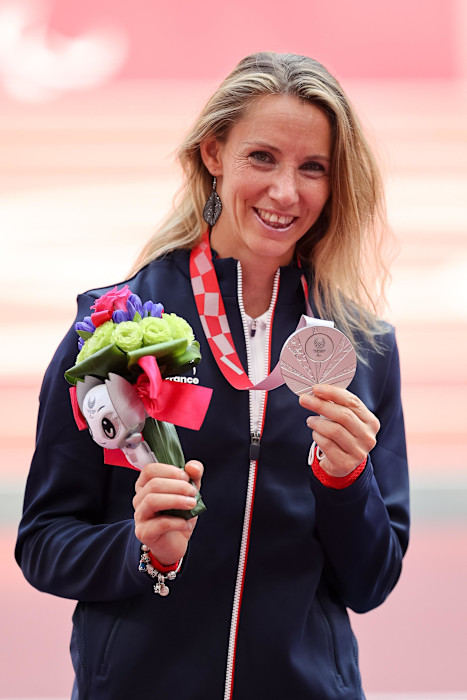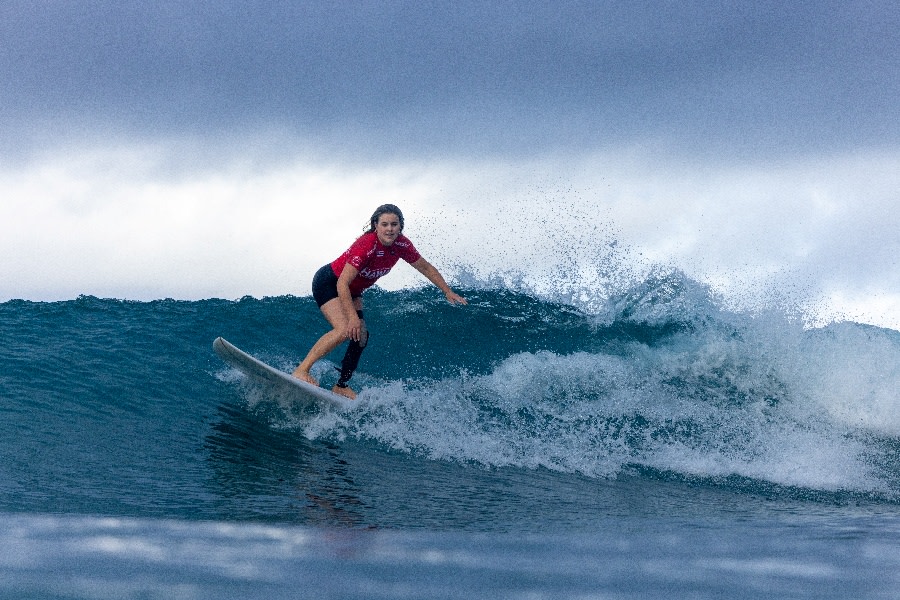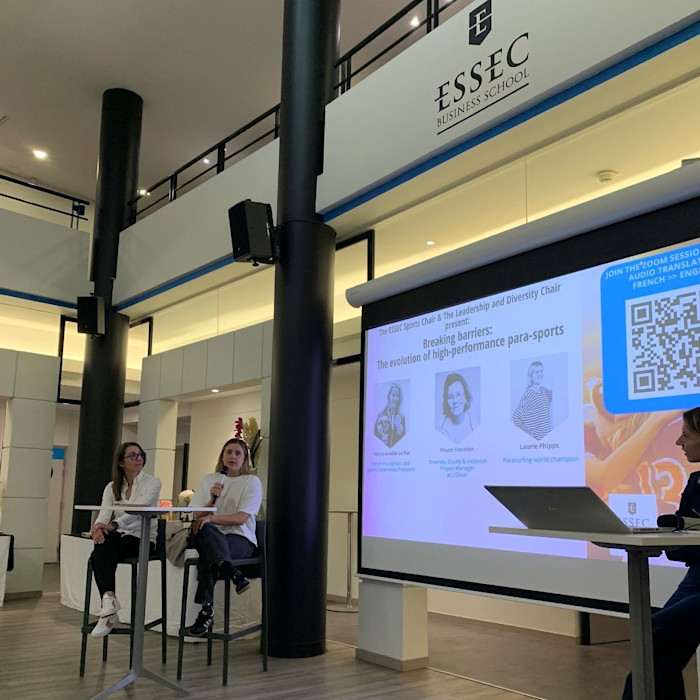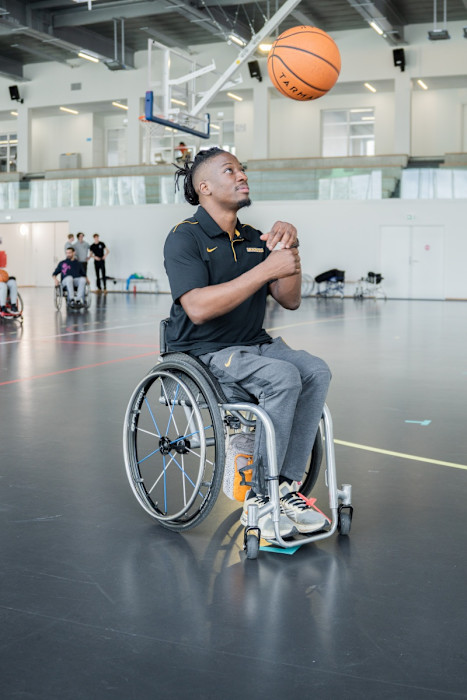The evolution of high-performance sports for athletes with disabilities has profoundly reshaped the global sporting landscape. At the ‘Breaking Barriers: The Evolution of High-Performance Parasports’ conference, jointly hosted by ESSEC’s Sports Chair and Leadership and Diversity Chair, prominent experts and athletes discussed the remarkable progress in parasports and their increasing role in promoting social inclusion.
The evolution of elite parasports and its impact on inclusion
18.7.2024
A phenomenal evolution
Marie-Amélie Le Fur, President of the French Paralympic and Sports Committee, shared her inspiring journey, which began with athletics at a young age. After losing a leg in a road accident at 15, sport became her path to emancipation and pushing the boundaries of what she thought possible. ‘When I put on my blade, people’s perceptions change. They look at me with admiration, like a warrior. Sport liberated me!’ Today, Marie-Amélie is a powerful advocate for Paralympic athletes, highlighting the rapid evolution of parasports, especially since the London 2012 Games, which marked a turning point by thrusting these competitions into the global spotlight.

Challenges and opportunities
Laurie Phipps, the world Para surfing champion, spoke of the challenges faced by disabled athletes. The daughter of surfboard manufacturers, Laurie split her time between Australia and Great Britain.
At 18, a road accident left her without the use of one leg. ‘The first thing I asked at the hospital was whether I could surf again. Eight months after my accident, thanks to a surfboard designed and made by my father, I was able to surf again and loved it!’ Laurie emphasized the lack of competitions and media coverage for Para surfing, but also noted an encouraging rise in the sport’s visibility. ‘I’ve been in the surfing world for two years, and I’ve noticed a positive evolution!’ The opportunity to compete alongside able-bodied athletes has opened new horizons, and demonstrates that disabled individuals can achieve remarkable feats.

Media attention towards Para sport events has seen remarkable growth. Marie-Amélie Le Fur highlighted that coverage has surged from 15 hours during London 2012 to a projected 300 hours for Paris 2024. However, there is still much work to fully integrate Paralympic sports into the mainstream sporting milieu. This gap is evident, for instance, in the broadcast of wheelchair basketball championships in Italy but not yet in France.
Sponsorship plays a pivotal role in enhancing performance and is vital for advancing the inclusion and visibility of Paralympic sports. Marie-Amélie Le Fur commented: ‘Sponsor support is crucial, especially in times of doubt, as it provides athletes with moral encouragement and peace of mind, ensuring they never feel alone in their pursuits’. Prune Houvion, head of Diversity, Equity, and Inclusion initiatives at L’Oréal, added that: ‘L’Oréal not only funds the often costly sports equipment but also provides significant media exposure for these athletes through high-impact advertising campaigns. This visibility helps change perceptions and foster inclusivity by showcasing the strength and grace of disabled athletes.’

The conference also tackled challenges and solutions aimed at promoting sports participation among people with disabilities. Marie-Amélie Le Fur stressed the necessity of enhancing access to specialized facilities and establishing adapted sports offerings. ‘Only 2% of sports clubs in France report readiness to accommodate individuals with disabilities.’ It is crucial to educate and prepare sports clubs to welcome disabled athletes, alongside integrating sports into public policy as a means of fostering inclusion. Raising awareness among educators and healthcare professionals is essential to expanding opportunities in this field.
The consensus among speakers was resounding: sport is a powerful tool for building a more inclusive society. It not only enables individuals to discover their own capabilities but also changes people’s perceptions of disability. Partnerships with corporations like L’Oréal play a pivotal role by providing essential resources and positive media exposure.
Looking ahead, there is a critical need to educate and raise awareness among young people, enhance the accessibility of sports facilities and infrastructure, and implement inclusive policies across all sectors of society. While the road to full inclusion is long, recent progress indicates significant change is happening.
The ‘Breaking Barriers’ conference not only underscored the challenges and triumphs of para-sport athletes but also emphasized the imperative of continuing to break down barriers for a more inclusive and fair society.
